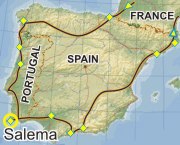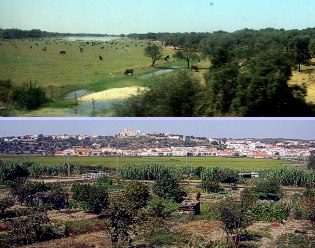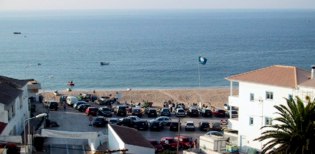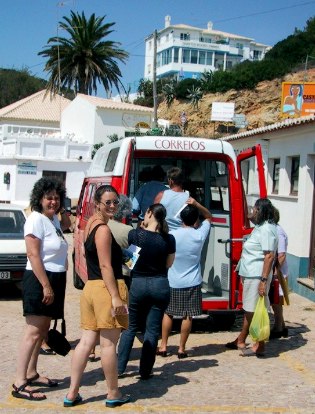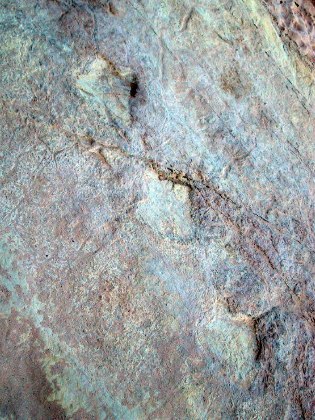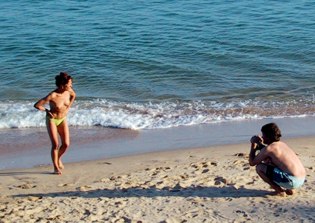Toward the end of our last day in Coimbra, Rochelle, Sienna, and I went to the train station to arrange for our onward trip, knowing it wouldn't be easy. Fortunately for us, we got a young woman behind the ticket window who spoke good English, and although it was clear that (1) she had never been to the Algarve, and (2) as a true northerner she couldn't imagine why anyone would want to go there, nevertheless she worked with us to find the best -- turned out to be only -- way to do the trip in one day, and to secure us tickets. "Thank you for speaking English," I said to her. "I'm too stupid to be able to speak to you properly in Portuguese." "Yes," she replied, "but you could learn..."
We left Coimbra gently, but the ensuing travel day was a long and complicated one. The 9:04 commuter train rattled us a couple of kilometers to the high speed station, and we had barely dragged our bags to the right platform when the red-white-and-blue Alfa Pendicular streaked in from the north. We found our seats and settled down for the easiest part of the trip, about two hours to Lisboa, where we stashed our bags in lockers and set out along Lisboa's riverine fringes in search of lunch. We found a lovely workmen's café where we were well taken care of, enjoying omelettes and beers and olives.
In Portugal one is often brought bread, olives, and spreads (anchovy, fish, nut, veggie) at the beginning of the meal, and billed for what one uses at the end. This comes as a surprise to some travelers, but seems perfectly sensible to us once we learned the rules. We experienced a new wrinkle in the workmen's café: we gobbled up our salad, and were promptly brought another without being asked. About this time Chad reappeared, having abandoned his search for an internet café, and so we made him a plate and started in on the second salad which we had originally thought to leave untouched. Perfect!
